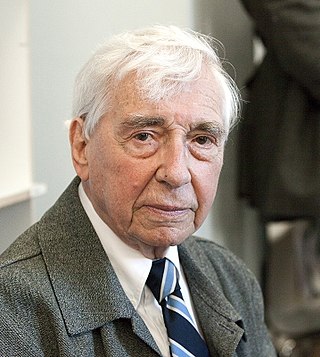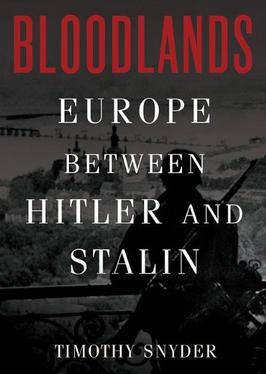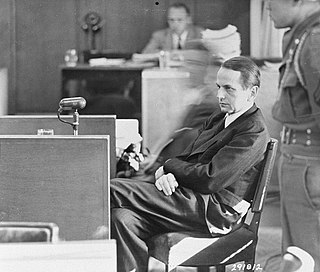
Democide refers to "the intentional killing of an unarmed or disarmed person by government agents acting in their authoritative capacity and pursuant to government policy or high command." The term was first coined by Holocaust historian and statistics expert, R.J. Rummel in his book Death by Government, but has also been described as a better term than genocide to refer to certain types of mass killings, by renowned Holocaust historian Yehuda Bauer. According to Rummel, this definition covers a wide range of deaths, including forced labor and concentration camp victims, extrajudicial summary killings, and mass deaths due to governmental acts of criminal omission and neglect, such as in deliberate famines like the Holodomor, as well as killings by de facto governments, for example, killings during a civil war. This definition covers any murder of any number of persons by any government.

The Romani Holocaust or the Romani genocide was the planned effort by Nazi Germany and its World War II allies and collaborators to commit ethnic cleansing and eventually genocide against European Roma and Sinti peoples during the Holocaust era.
This is a selected bibliography and other resources for The Holocaust, including prominent primary sources, historical studies, notable survivor accounts and autobiographies, as well as other documentation and further hypotheses.

Vergangenheitsbewältigung is a German compound noun describing processes that since the later 20th century have become key in the study of post-1945 German literature, society, and culture.

The Black Book of Communism: Crimes, Terror, Repression is a 1997 book by Stéphane Courtois, Andrzej Paczkowski, Nicolas Werth, Jean-Louis Margolin, and several other European academics documenting a history of political repression by communist states, including genocides, extrajudicial executions, deportations, and deaths in labor camps and artificially created famines. The book was originally published in France as Le Livre noir du communisme: Crimes, terreur, répression by Éditions Robert Laffont. In the United States, it was published by Harvard University Press, with a foreword by Martin Malia. The German edition, published by Piper Verlag, includes a chapter written by Joachim Gauck. The introduction was written by Courtois. Historian François Furet was originally slated to write the introduction, but he died before being able to do so.

Arno Joseph Mayer was an American historian who specialized in modern Europe, diplomatic history, and the Holocaust. He was the Dayton-Stockton Professor of History at Princeton University.
Robert Gellately is a Canadian academic and noted authority on the history of modern Europe, particularly during World War II and the Cold War era.
Responsibility for the Holocaust is the subject of an ongoing historical debate that has spanned several decades. The debate about the origins of the Holocaust is known as functionalism versus intentionalism. Intentionalists such as Lucy Dawidowicz argue that Adolf Hitler planned the extermination of the Jewish people as early as 1918, and personally oversaw its execution. However, functionalists such as Raul Hilberg argue that the extermination plans evolved in stages, as a result of initiatives that were taken by bureaucrats in response to other policy failures. To a large degree, the debate has been settled by acknowledgement of both centralized planning and decentralized attitudes and choices.
Holocaust trivialization refers to any comparison or analogy that diminishes the scale and severity of the atrocities that were carried out by Nazi Germany during the Holocaust. The Wiesel Commission defined trivialization as the abusive use of comparisons with the aim of minimizing the Holocaust and banalizing its atrocities. Originally, holocaust meant a type of sacrifice that is completely burnt to ashes; starting from the late 19th century, it started to denote extensive destruction of a group, usually people or animals. The 1915 Armenian genocide was described as a "holocaust" by contemporary observers.

Mass killings under communist regimes occurred through a variety of means during the 20th century, including executions, famine, deaths through forced labour, deportation, starvation, and imprisonment. Some of these events have been classified as genocides or crimes against humanity. Other terms have been used to describe these events, including classicide, democide, red holocaust, and politicide. The mass killings have been studied by authors and academics and several of them have postulated the potential causes of these killings along with the factors which were associated with them. Some authors have tabulated a total death toll, consisting of all of the excess deaths which cumulatively occurred under the rule of communist states, but these death toll estimates have been criticized. Most frequently, the states and events which are studied and included in death toll estimates are the Holodomor and the Great Purge in the Soviet Union, the Great Chinese Famine and the Cultural Revolution in the People's Republic of China, and the Cambodian genocide in Democratic Kampuchea.
Holocaust studies, or sometimes Holocaust research, is a scholarly discipline that encompasses the historical research and study of the Holocaust. Institutions dedicated to Holocaust research investigate the multidisciplinary and interdisciplinary aspects of Holocaust methodology, demography, sociology, and psychology. It also covers the study of Nazi Germany, World War II, Jewish history, religion, Christian-Jewish relations, Holocaust theology, ethics, social responsibility, and genocide on a global scale. Exploring trauma, memories, and testimonies of the experiences of Holocaust survivors, human rights, international relations, Jewish life, Judaism, and Jewish identity in the post-Holocaust world are also covered in this type of research.

Bloodlands: Europe Between Hitler and Stalin is a 2010 book by Yale historian Timothy Snyder. It is about mass murders committed during World War II in territories controlled by Nazi Germany and the Soviet Union.

John-Paul Himka is an American-Canadian historian and retired professor of history of the University of Alberta in Edmonton. Himka received his BA in Byzantine-Slavonic Studies and Ph.D. in History from the University of Michigan in 1971 and 1977 respectively. The title of his Ph.D. dissertation was Polish and Ukrainian Socialism: Austria, 1867–1890. As a historian Himka was a Marxist in the 1970s–80s, but became influenced by postmodernism in the 1990s. In 2012 he defined his methodology in history as "eclectic".

This is a list of books about Nazi Germany, the state that existed in Germany during the period from 1933 to 1945, when its government was controlled by Adolf Hitler and his National Socialist German Workers' Party. It also includes some important works on the development of Nazi imperial ideology, totalitarianism, German society during the era, the formation of anti-Semitic racial policies, the post-war ramifications of Nazism, along with various conceptual interpretations of the Third Reich.
Richard David Breitman, born in 1947, is an American historian best known for his study of the Holocaust.
Eric Henry Monkkonen was an American urban and social science historian who conducted authoritative studies on the history of crime as well as urban development. His work produced evidence that countered and overturned many assumptions, such as that crime rates are higher in urban areas, and increased during post-war periods and economic downturns. His works on the history of crime in several cities were extensive, cataloging close to every recorded homicide in New York City since 1798, and every homicide in Los Angeles since 1827, and conducting extensive studies on several more cities, primarily in the Western world. At one time he believed that murder was largely "a problem of men", and that "If men take charge of anything ... it must be of the notion that real men don't kill, that self-respect means shrugging off an insult, and that the better manliness accrues to him who does not fight. Other countries have done this, and so can the United States."
Anthony Dirk Moses is an Australian scholar who researches various aspects of genocide. In 2022 he became the Anne and Bernard Spitzer Professor of Political Science at the City College of New York, after having been the Frank Porter Graham Distinguished Professor of Global Human Rights History at the University of North Carolina at Chapel Hill. He is a leading scholar of genocide, especially in colonial contexts, as well as of the political development of the concept itself. He is known for coining the term racial century in reference to the period 1850–1950. He is editor-in-chief of the Journal of Genocide Research.

Holocaust education is efforts, in either formal or informal settings, to teach about the Holocaust. Teaching and Learning about the Holocaust addresses didactics and learning, under the larger umbrella of education about the Holocaust, which also comprises curricula and textbooks studies. The expression "Teaching and Learning about the Holocaust" is used by the International Holocaust Remembrance Alliance.

Genocide justification is the claim that a genocide is morally excusable/defensible, necessary, and/or sanctioned by law. Genocide justification differs from genocide denial, which is the attempt to reject the occurrence of genocide. Perpetrators often claim that genocide victims presented a serious threat, justifying their actions by stating it was legitimate self-defense of a nation or state. According to modern international criminal law, there can be no excuse for genocide. Genocide is often camouflaged as military activity against combatants, and the distinction between denial and justification is often blurred.

Roni Stauber is an Israeli historian. He is an Associate Professor in the Department of Jewish History at Tel Aviv University. Stauber serves as the Director of the Goldstein-Goren Diaspora Research Center and the Director of the university's Diploma Program in Archival and Information Science. Stauber is also a member of the academic committee of Yad Vashem. His research focuses on various aspects of Holocaust memory and the formation of Holocaust consciousness in Israel and around the world. In particular, he examines the interrelations between ideology and politics, and between collective memory and historiography, with a focus on Israeli-German relations.










